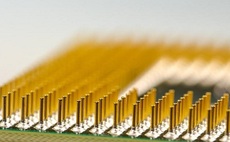Former MS Windows president explains that new tech products often don't have all the features of the tools they replace
Former Microsoft Windows president Steven Sinofsky has described technology transitions as "bumpy", explaining that businesses need to get over the fact that new tools are often less feature-rich t...
To continue reading this article...
Join Computing
- Unlimited access to real-time news, analysis and opinion from the technology industry
- Receive important and breaking news in our daily newsletter
- Be the first to hear about our events and awards programmes
- Join live member only interviews with IT leaders at the ‘IT Lounge’; your chance to ask your burning tech questions and have them answered
- Access to the Computing Delta hub providing market intelligence and research
- Receive our members-only newsletter with exclusive opinion pieces from senior IT Leaders






















